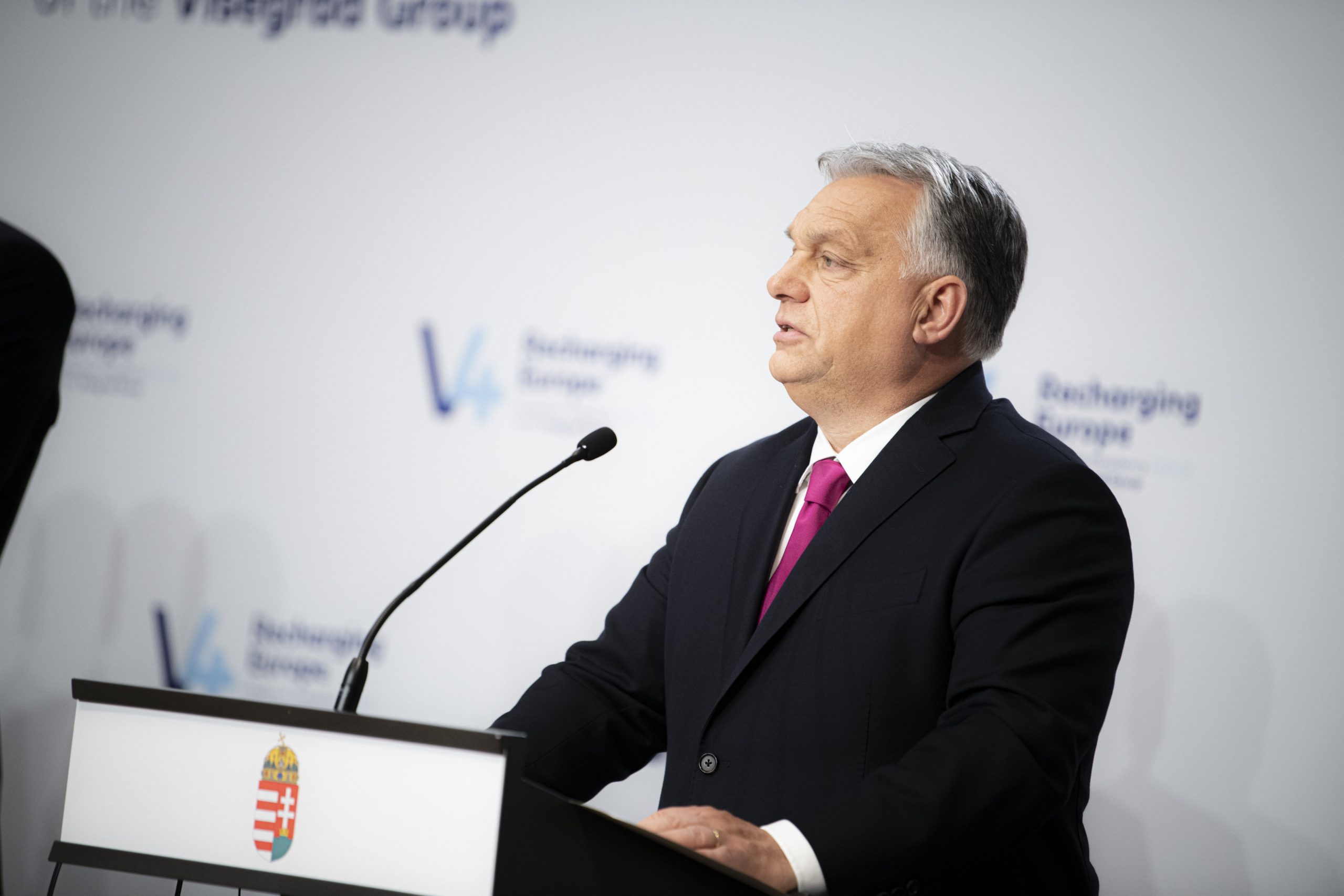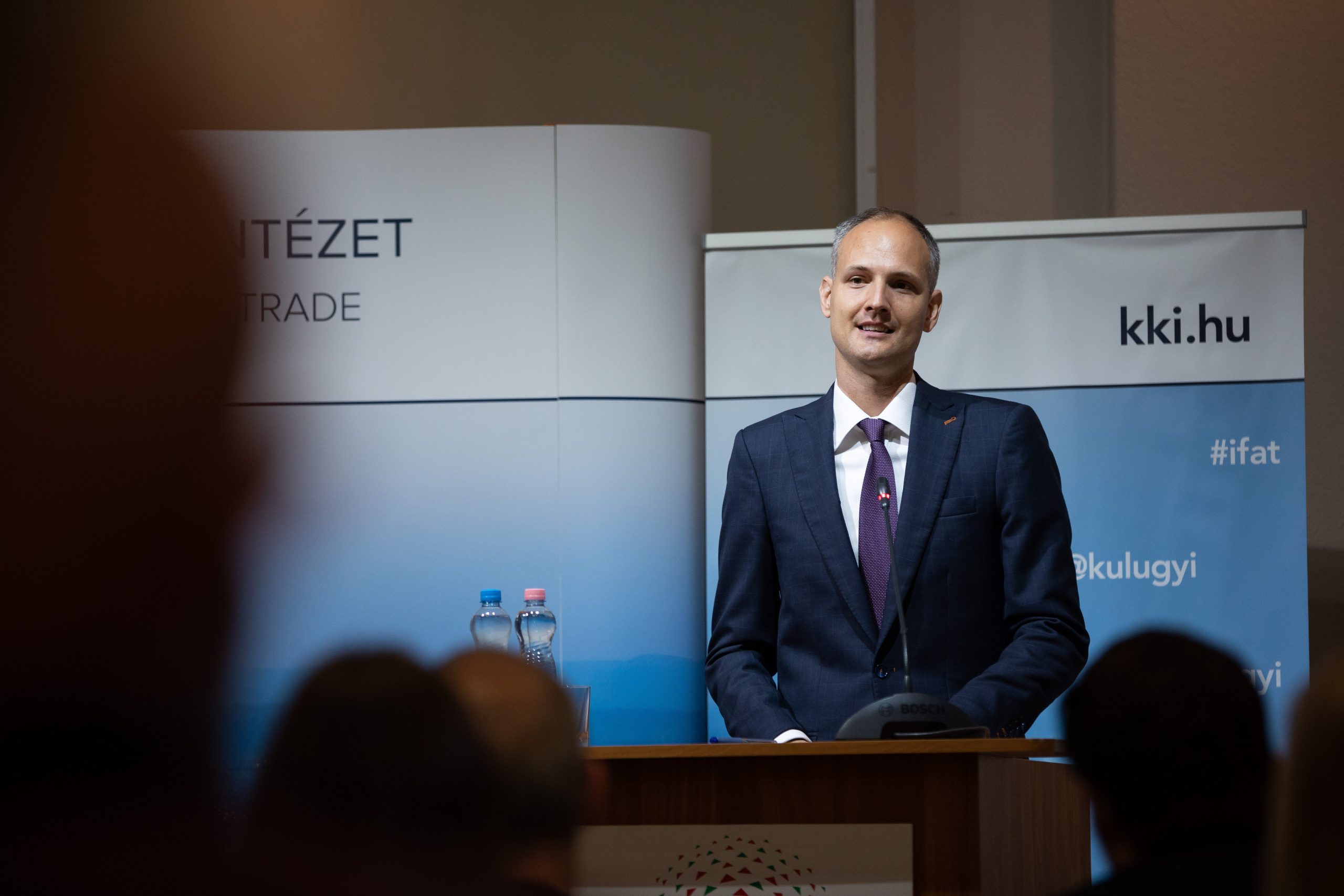
At a meeting with his Visegrad Group counterparts, Orbán insisted that the EU should cover the costs of the protection of the European borders.Continue reading

“Hungary stands by Poland when it comes to the protection of the external border,” Márton Ugrósdy emphasized in his interview with the Friends of Hungary Foundation. Representing the Hungarian state’s foreign policy think-tank at the Hungary at First “Site” Conference, the Director of the Institute for Foreign Affairs and Trade discussed Hungary’s approach to the Polish-Belarussian border crisis, discriminatory language laws in Ukraine, suspicious developments in the Balkans, and Visegrád Group cooperation.
The Institute for Foreign Affairs and Trade (IFAT) functions separately from the Hungarian government, however its expert insights and research into the international community make it a key advisor on how Hungary can approach the world. Right now, the topic of greatest interest in Central Eastern Europe is without a doubt the crisis at the border of Poland and Belarus, thus Márton Ugrósdy’s take on the subject was helpful in providing listeners with greater insight into the Hungarian perspective on the conflict.
“We might have seen this before,” Ugrósdy said, referring to the border fence Hungary put up during the migration crisis of 2015 which halted large numbers of asylum seekers from entering Hungary. “However,” he added, “the reaction we got from the European Union, […] was not as supportive as the […] declarations which our Polish friends are receiving nowadays.”
While a large part of the international community sees Russia as the cause of the problem, Ugrósdy told host Árpád Szőczi that it is too early to determine who is behind it. He considers illegal, irregular migration over the past decade to be the main, broader cause of the problem, with multiple non-EU member states, organized crime networks, and certain secret services “interested in the destabilization of Europe.”
Hungary does respect the different opinion of Poland when it comes to Russia, […] we do understand that Poland has different priorities here, we try to help them as much as we can, but because Russia and Hungary are fortunately not so close to each other and there’s no direct threat emanating from Russia against Hungary at the moment, I think Hungary can take a more diverse set of views on [the issue].”
Ugrósdy also brought up that Hungary’s energy dependency on Russia means that it “has to have a more balanced relationship with Russia.”
We asked Ugrósdy whether, thanks to it having better relations with Belarus and Russia compared to other Central and Eastern European nations, Hungary could act as a mediator trying to find some sort of common ground, he responded that there is “some amount of coordination,” on both sides of the fence. He is unsure about the effectiveness of the negotiations, “because Poland seems to be very resolutely backed by the Baltic states and some decisionmakers in Europe as well to have a firm stance.”
Maybe they are not yet interested in resolving the situation, but of course we’ll see, so far it looks like Polish security forces can manage the situation on the border.”
Ukraine’s controversial language and education laws were also brought up in the discussion. While the language law makes the use of the Ukrainian language compulsory in “practically every circumstance except for private conversations and religious ceremonies,” the education law, within a year, will disallow all ethnic minorities from studying in their mother tongue past grade four.
Because of this language law, 150 thousand Hungarians living in Ukraine are now restricted from using and learning Hungarian. In turn, Hungary is blocking Ukraine’s membership in NATO.
Ugrósdy says it is up to Ukraine to resolve the issue, since the bill was passed in the Ukrainian parliament. The educational law is “basically wiping out the already existing Hungarian educational institutions in Ukraine.”
He says there are regular talks between the two governments, that Hungary is only blocking ministerial and high-level NATO meetings, thus still allowing for a level of cooperation with the alliance. Ugrósdy added that “at the end of the day, the ball is in the Ukrainian Court.”
The biggest issue here is that Hungary and Ukraine have signed a basic treaty back in the 1990s which on the one hand guaranteed the inviolability of the Ukrainian-Hungarian border, in exchange the Ukrainian party has promised to protect minority rights in Ukraine. Obviously they are not really living up to these promises.”
Prime Minister Viktor Orbán recently met with the Serb Member of the Presidency of Bosnia Herzegovina, Milorad Dodik, a controversial figure who has been accused of wanting a Serbian entity separated from Bosnia Herzegovina. Asked why Orbán would meet with someone who critics say could start a civil war, Ugrósdy said that in foreign policy, “you cannot choose your partners, […] you have to work with whoever is there on the ground.”
Ugrósdy emphasized the need for continued dialogue in Bosnia Herzegovina, adding that Hungary is involved in resolving regional issues, and that “nobody who is interested in the security and prosperity of the Western Balkans can exclude talking to the key players in the region.”
If you want to preserve peace in Bosnia and Herzegovina, you have to talk to all the stakeholders, including those who are not so much liked by the Western press.”
Hungary Today also asked about the potential weakening of Visegrád Group cooperation in the future, with key officials like Mikuláš Bek, the new minister for European affairs for the incoming Czech government, saying that the group is overrated, and that he would rather focus on German and Western European cooperation in the future.
Ugrósdy is not too worried about such statements, since “at the end of the day, it’s the prime minister that counts.” He is confident that incoming Prime Minister Petr Fiala “is committed to preserving the cooperation within the Visegrád Four.”
I am very optimistic about the new Czech government because it’s going to be lead by a true conservative prime minister, […] it wouldn’t be so hard to find common ground on the prime ministers’ level.”
Featured photo illustration by Balázs Mohai/MTI